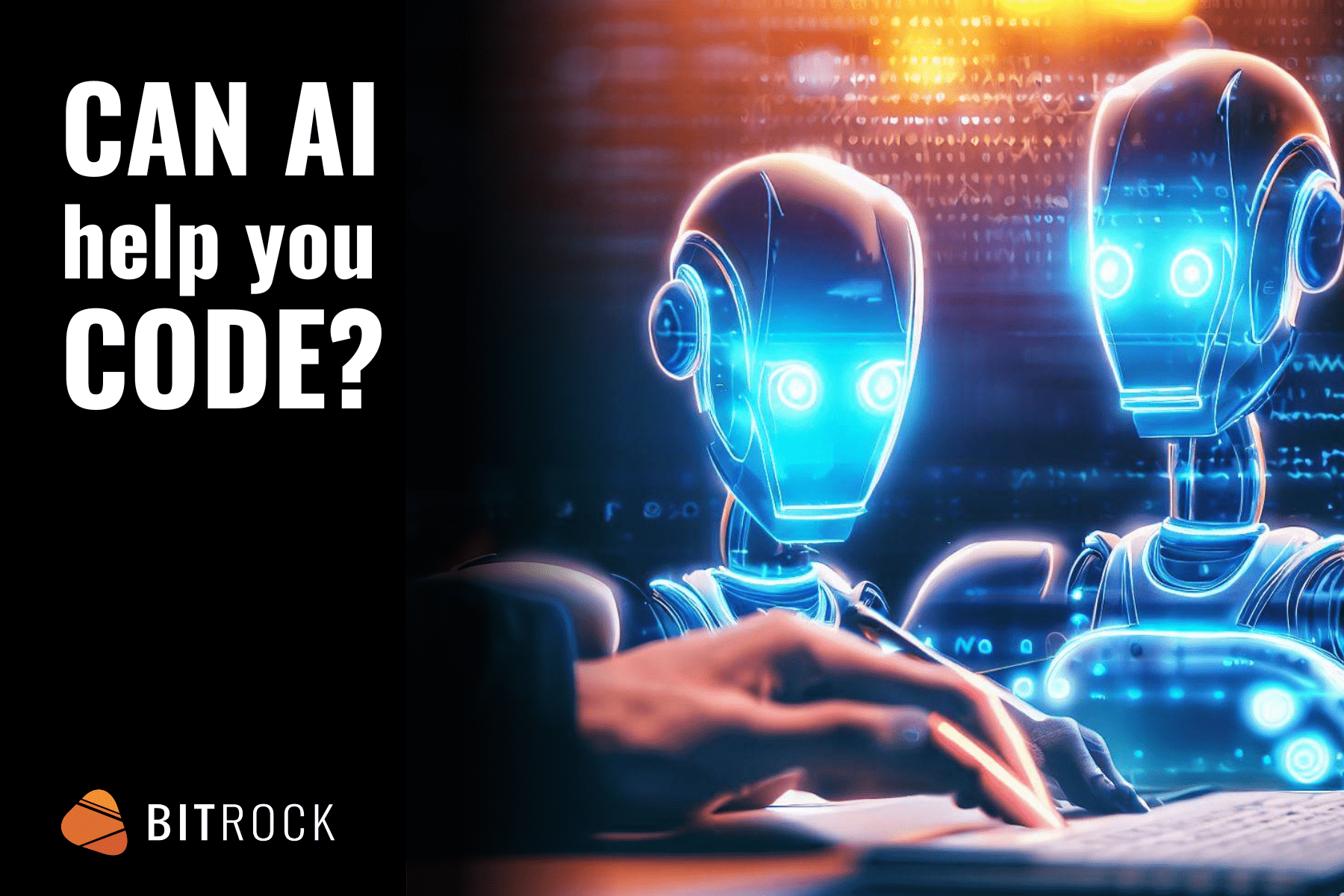Artificial Intelligence (AI) is not just a buzzword; it’s a transformative technology that is reshaping our reality. From work to social interactions, AI is making its mark.
In this blog post, we focus on the impact that AI is having, and will continue to have on the software development industry. We will try to answer to the crucial question: will AI replace the role of programmers entirely?
The State of the Art
To date, AIs already perform a wide range of tasks: from writing code, to conducting research in technical documentation, from revealing vulnerabilities to automating tasks from a simple prompt.
We will now mention a few of them, so that you better understand the scope of these tools.
With GitHub Copilot it is possible to speed up the simplest and most repetitive tasks or the research phase in technical documentation with results that speak for themselves: code writing time halved, ability to perform 35% of tasks autonomously and an overall satisfaction rating of about 70%.
It turns out to be a tool – for now – that is integrated with human activity and does not aim at replacement, but upcoming evolutions could go in other directions.
Zapier, a task manager that allows to automate more or less complex tasks starting from a simple prompt, introduces a fundamental topic: using AI to automate web services that already exist through APIs, could allow even code novices to streamline, modify and customize existing Applications.
Finally, we would like to mention one last tool that is experiencing widespread adoption today: Snyk from Deepcode, an AI that can analyze an existing code and detect the presence of any vulnerabilities, thus preventing cyber attacks or malfunctions.
Risks and Opportunities
However, the hype around AI tools and OpenAI in particular seems to be overblown.
They are certainly useful tools in the design phase both in terms of organizing a project and structuring the code, but the implementation of the artifacts is something that needs to be perfected and needs even meticulous and constant review.
The greatest difficulties are encountered in giving the right input to tools: a requirement that is too narrow or too broad, without contextualizing the problem, leads to the generation of code that is difficult to reuse.
Thinking about the AI applications in the enterprise, some of the main advantages and risks associated with the massive use of them in the programming sector become evident, as they emerge in any other area.
A junior figure – to be considered as one with limited work experience in time – if not properly directed by a colleague with greater seniority, can incur different risks using AI for code generation.
Settling for the first solution processed by the tool can lead to poor results or broken systems: this causes loss of confidence in the tool itself, leading to a vicious cycle of copy/paste to other sites such as Stackoverflow.
In case the developer does not have enough skills to understand the quality of the solution offered, correct or not, it prevents them from learning and growing professionally.
These and other kinds of problems are avoidable with the support of a work team that, by necessity, cannot be composed of juniors alone, and with the development of soft skills such as the ability to work in a team and continuous training.
A developer with medium/high seniority, on the other hand, can take advantage of the tools in different contexts and for different tasks. For example, he or she can benefit from AI tools to request documentation, solve common problems across projects (e.g., ORM, date management), perform code reviews with automated code production, create a test scenario, and verify that a block of code meets all the requirements of a given story.
All of this, of course, is possible by starting with a proper prompt and providing for review and a series of incremental improvements.
Indeed, it is essential to always check the quality of the solution produced in terms of conventions, nonobsolescence, and versatility of the code.
Conclusions
The importance of a well-built team, solid core competencies, an agile working methodology based on transparency and cooperation, and constant and open code reviews are still necessary for the success of any project.
So while the use of Artificial Intelligence tools can bring significant benefits, it is important to consider them as supporting tools and not as substitutes for human expertise and technical knowledge.
It is essential to critically evaluate the results obtained, apply good development practices, and subject the generated code to human review to ensure correctness and quality.
Although some fear that in the coming years AI could completely replace developers, we are instead certain that the human figure will remain necessary. The new challenges that will emerge, especially in ethical and regulatory terms, will bring about the need for new task areas of competence for human beings.
In conclusion, AI is a powerful tool and the responsibility lies with us to ensure that we use it ethically and responsibly.
Author: Luigi Cerrato, Software Engineer @ Bitrock

